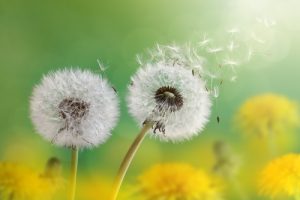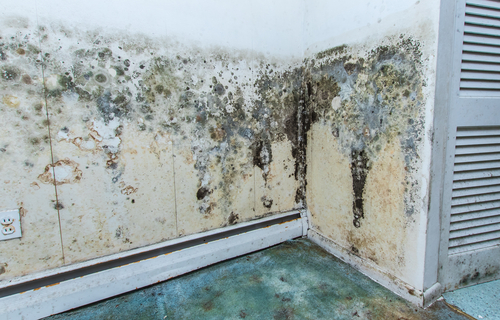Environmental allergies are more commonly referred to as hay fever or allergic rhinitis. An allergic reaction is triggered in the nose when specific allergens such as pollen or mold spores are detected, causing the body to release histamine. This reaction often results in inflammation, nasal congestion, swollen nasal membranes and reduced sinus drainage due to blockage, all of which can interfere with breathing. While pollen allergies are seasonal, mold allergies are perennial.
Our specialists will be able to help you with your environmental allergy treatment. First, through testing, they will identify the source of your environmental allergy. They will then work together with you on a plan to avoid or decrease contact with the source, and prescribe or recommend medication and sprays that could help you to deal with the symptoms of exposure.
Pollen grains are microscopic in size and by design are easily airborne, which is bad news for allergy suffers. Not all blooming plants cause issues though. Some species are self-pollinating, so their pollen doesn’t need to travel. Others species rely on cross-pollination, assisted by insects and animals, and their pollen is therefore less likely to become airborne. There is, however, a group of plants that relies on the wind for pollination, and these are the ones that cause problems. They produce massive amounts of pollen, up to one million grains a day, and their pollen is usually small, lightweight and dry. This means these grains are not only easily airborne, but they are also difficult to avoid and easily inhaled.
Pollen allergy counts change constantly, but it is helpful to consult the counts contained in local weather forecasts to find out when it’s best to avoid being outdoors.
Pollen allergy symptoms include irritation and itching of the eyes, nose, and throat; sneezing; a block nose; and a post-nasal drip. In more severe cases, a person may find themselves short of breath, and experience wheezing, coughing and chest congestion.
Mold and mildew are fungi and differ from plants and animals in how they reproduce and grow. Their seeds, called spores, travel through the air, sometimes in dry windy conditions, and sometimes with fog when humidity is at high levels.
Mold is found everywhere, both indoors and outdoors. The types of mold spores that most commonly cause an allergic reaction are aspergillus, penicillium, alternaria and cladosporium. The signs of allergies from inhaling mold spores include sneezing, itching, a runny nose, congestion and dry, scaly skin.

In the UAE and other hot countries where we rely heavily on air-conditioning, the ducts can be particularly troublesome. Air-conditioning can harbor large amounts of mold, so it’s important that they are cleaned every six months. We work with professional companies that can send robots to clean the ducts and show you the before-and-after photos. Do not rely on your landlord to handle this job.
If our specialists have determined mold spores to be the source of your allergy, they can advise you on the many strategies you can take to lessen your exposure to mold. You could use a Hepa filter on your air-conditioner, buy hypoallergenic household goods and take steps to prevent mold build-up indoors, for example. There are also over-the-counter and prescription medications that could help alleviate your symptoms.







